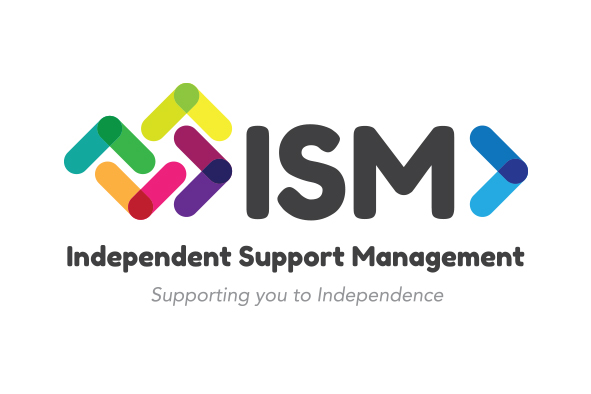👩🏽⚕️ Understanding Disability-Related Health Supports: Core Therapy Supports
Welcome to ISM's Knowledge Hub! 👋
Today, we're diving into the essential topic of Disability-Related Health Supports within the NDIS framework. Whether you're an NDIS participant, a carer, or just curious about how health supports tie into your NDIS plan, this guide is here to clarify what these supports entail and how they can help you manage your disability-related health needs. Let’s break down the details:
What Are Disability-Related Health Supports? 🤔
Disability-related health supports are specialised services and products funded by the NDIS to help manage health conditions that arise as a direct result of a disability. Unlike general health services, which the Australian health system covers for everyone, these supports are tailored to meet the specific needs that your disability creates in your daily life.
For example, if your disability impacts your ability to manage diabetes, the NDIS may fund supports like training for your support workers to help monitor blood sugar levels. However, the NDIS does not fund the general treatment of diabetes itself—that’s where Medicare steps in.
Types of Disability-Related Health Supports 🛠️
Here’s a list of some common disability-related health supports that might be included in your NDIS plan:
Continence Supports: Products and assistance to manage continence.
Diabetes Management: Support for testing blood sugar levels and managing the condition if you can’t do it independently due to your disability.
Dysphagia Supports: Assistance with eating, drinking, or swallowing safely.
Respiratory Supports: Devices and care to maintain respiratory health, such as cough assist machines.
Wound and Pressure Care: Support for managing slow-healing wounds or pressure sores, including necessary equipment like pressure care cushions.
Podiatry: for participants who require help looking after their feet, ankles and lower limbs.Epilepsy: for participants who need daily help managing the way epilepsy affects the way their brain and nerves work.
Botox and Splinting: It is unlikely Botox and splinting supports will be reasonable and necessary to include in a plan, as these are generally provided in a clinical setting.
These supports are designed to help you live more independently, whether that means moving around your home safely, managing your diet, or ensuring proper care for ongoing conditions related to your disability.
Who Can Provide These Supports? 🩺
Only specific types of professionals can deliver these supports, ensuring that participants receive care from qualified experts. These professionals include:
Dietitian: Accredited Practising Dietitians with the Dietitians Association of Australia.
Occupational Therapist: Professionals registered with the Australian Health Practitioner Regulation Agency (AHPRA).
Physiotherapist: AHPRA-registered physiotherapists.
Podiatrist: AHPRA-registered podiatrists.
Psychologist: AHPRA-registered psychologists.
Speech Pathologist: Certified Practising Speech Pathologists (CPSP) approved by Speech Pathology Australia.
Other Professionals: Providers who are deemed appropriate by the NDIS Quality and Safeguarding Commission to deliver these supports.
These professionals can deliver the services directly to individual participants or in group settings, as outlined in the NDIS Pricing Arrangements and Price Limits.
Price Limits and Registration Group 0128 💵
These supports fall under Registration Group 0128: Therapeutic Supports and are intended for participants aged over 7 years. Here are some of the key pricing details based on the type of therapy provided and location:
Item Name | Hourly Rate (NSW, VIC, QLD, ACT) | Remote | Very Remote |
|---|---|---|---|
Dietitian | $193.99 | $271.59 | $290.99 |
Occupational Therapist | $193.99 | $271.59 | $290.99 |
Physiotherapist | $193.99 - $224.62 | $314.47 | $336.93 |
Podiatrist | $193.99 | $271.59 | $290.99 |
Psychologist | $222.99 - $244.22 | $341.91 | $366.33 |
Speech Pathologist | $193.99 | $271.59 | $290.99 |
Other Professional | $193.99 | $271.59 | $290.99 |
These rates reflect the price limits set for each type of service, with variations depending on geographic location, particularly for remote and very remote areas.
What Costs Are Covered? 💰
In addition to direct service provision, the NDIS allows for claims under these support items for various related expenses, including:
Non-Face-to-Face Support Provision
Provider Travel Costs
Short Notice Cancellations (with at least 2 clear business days' notice)
NDIA Requested Reports
Providers can also claim for Non-Labour Costs associated with travel, using specific support item codes.
How Does the NDIS Decide What to Fund? 📝
The NDIS assesses whether a support is reasonable and necessary based on several criteria:
Direct Link to Disability: The support must directly address the functional impact of your disability.
Value for Money: The NDIS evaluates if the support is cost-effective compared to other options.
Effectiveness: The support should be proven to help manage your condition or improve your independence.
No Overlap with Health Services: The support should not be something that the general health system is responsible for providing.
Examples and Real-Life Scenarios 🧩
Example 1: Managing Diabetes Hannah has Down syndrome and needs daily help testing her blood sugar. The NDIS funds training for her support worker to perform these tests, ensuring she can manage her diabetes safely at home.
Example 2: Post-Hospital Care Maria, who had a stroke, receives ongoing support for mobility and swallowing after being discharged from the hospital. The NDIS funds these disability-related supports because they are essential for her daily life and directly linked to her disability.
Key Takeaways:
Therapy and Early Childhood Supports under the NDIS provide crucial care for participants' disability-related health needs that go beyond standard nursing care.
Qualified professionals such as dietitians, occupational therapists, and psychologists are authorised to deliver these supports.
References
We hope this deep dive has been helpful! Remember, your NDIS journey is unique, and we're here to support you every step of the way. Got questions or want to chat more about this? Don’t hesitate to reach out to your friendly ISM team. We’re always here to help you make the most of your NDIS plan! 😊💪
